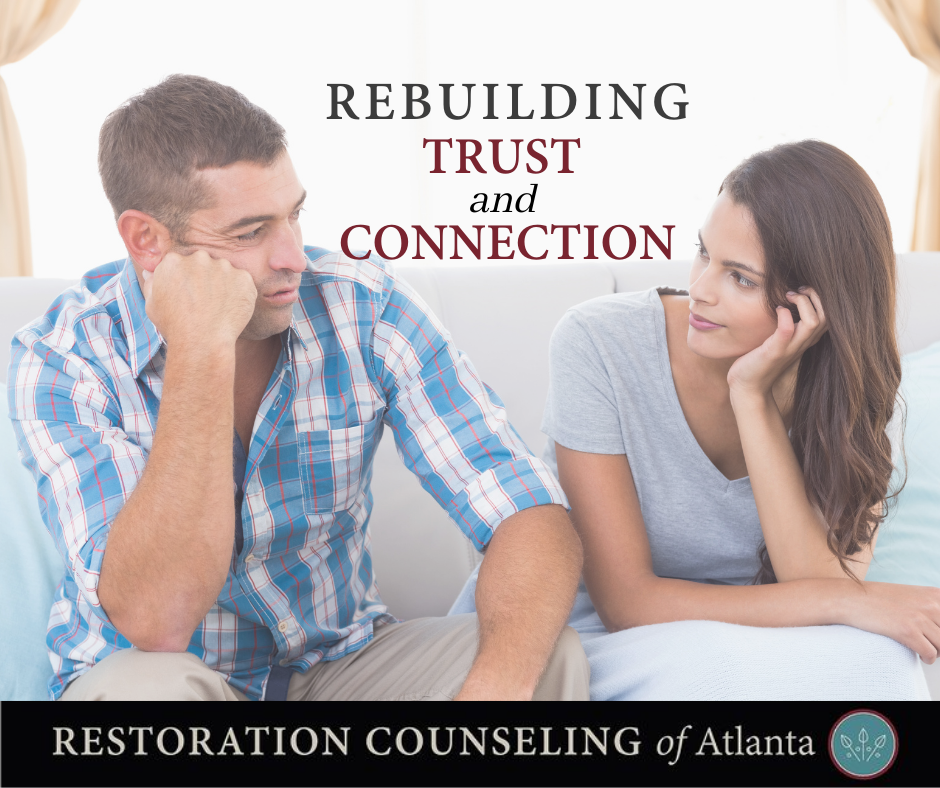Conflict is inevitable in relationships—especially in marriage. Many fear conflict because they were not taught how to handle it in a healthy way. Therapist Adam Young says, “We do not need our spouses to stop hurting us; what we need is adequate repair.” In order to handle conflict in a healthy way, it’s important to understand your attachment style and how it plays a part in your marriage conflict.
Relational Attachment Styles
According to John Bowlby, there are four types of relational attachment styles.
- Secure
- Preoccupied or ambivalent
- Dismissive-avoidant
- Disorganized attachment
Each person’s attachment style established roots during childhood. This is based on how their parents related to them and the degree of closeness they experienced in the relationship, especially when they disagreed.
A secure attachment is the goal. This is when one feels low anxiety and low avoidance during conflict. When there are disagreements, they know that the rupture will be repaired. A secure person doesn’t sacrifice their individuality to be connected.
A preoccupied style, however, refers to someone who is highly anxious when there is a disconnection in a relationship and longs to reconnect. This person would move toward their spouse during conflict and pursue the relationship because they feel threatened. They may fear that the relationship will end due to disconnection.
A dismissive-avoidant style is when someone retreats and is avoidant in conflict. This style is the opposite of the preoccupied attachment style because this partner does not feel a lot of anxiety. Instead, they would rather have space to internally process the conflict.
The disorganized attachment style is someone who is highly anxious and avoidant. This person usually does not feel a great sense of self, and there was often trauma during childhood.
Breaking the Cycle of Pain
Understanding your attachment style and your partner’s attachment style will help you understand where you get stuck in arguments. Awareness of this cycle can help to break that cycle of pain.
Family systems therapy explains that a family is a unit. If one person changes, then it creates change in the whole family system. Many couples focus ineffectively on “trying” to change their spouse. As a result, they actually lose the awareness of how much more empowering it is to focus on changing themselves. Thus, each person’s healing will require the other to grow (David Woodsfellow).
Understanding Your Spouse
The book How We Love says, “we need a Ph.D. in how our spouse was wounded” (M. & K.Yerkovich). Understanding your spouse’s childhood wounds and how they play out in your marriage can be one of the most important parts of differentiating yourself from each other. Differentiation is the opposite of codependency because it allows each person to know that they are separate people, and are responsible for their own triggers. This helps in becoming more securely attached to your spouse.
Harville Hendrix describes the healing balm that can take place in marriage when he says, “romantic love delivers us into the passionate arms of someone who will ultimately trigger the same frustrations we have had with our parents, but for the best possible reason. Doing so brings our childhood wounds to the surface so they can be healed.” Terry Real also says “each person has an adaptive child that helped them learn how to cope with wounds from growing up. It’s what we do under stress. We need to parent our own adaptive child.”
Healing from the Past
Since marriage is designed to help us heal from our past, a healthy repair is crucial to becoming a more securely attached couple. There are two types of repairs, cognitive ones, and emotional ones.
An example of a cognitive repair would be to ask for clarification and say something like “help me understand what I can say now to make this situation better?” Another example would be to describe the conflict so that both parties feel understood and they can do active listening with each other using (John Gottman).
An emotional repair is usually more effective than a cognitive one. Three examples of emotional repairs are:
- To agree that your partner is right in some ways—even if it’s just one small part. Finding something that you can agree upon will lead to less defensiveness on both ends.
- To ask questions and explore with curiosity. An example would be “What did you mean by that? I heard you say that you were really upset. Can you help me understand better what my words triggered in you?”
- For one partner to take responsibility for their part of the argument.
Moving Toward Reconnection
In conclusion, couples are going to have arguments; therefore, it is imperative to reframe them as something that can help you reconnect instead of fearing the relationship will end. According to therapist Adam Young, “most arguments are bids for attention and reconnection.” Therefore, beginning to see arguments that way can actually help make them less scary and to be more productive. The goal of an argument is to reconnect and to understand how your words and actions triggered your spouse. Once each person realizes that they are activating part of their partner’s past, then each person can be more differentiated to be able to actually hear what their partner has to say. During relational ruptures, remind yourself that you are talking to someone that you love. Remember that you both want to be connected, you just do it in different ways.
 by Mead Reed, MA, LMFT, LPC
by Mead Reed, MA, LMFT, LPC
mead@restorationcounselingatl.com, ext. 115
Roswell and Buckhead Locations
Mead counsels children, adolescents, adults, and families struggling with anxiety, depression, communication difficulties, grief, and other life issues. She is a certified PREPARE/ENRICH facilitator and also works with premarital couples. Mead’s sincere desire to help her clients experience freedom from fear. She is passionate about helping her clients get out of the rut they have experienced and into new, healthy relationship patterns. She will provide a safe environment for healing.

